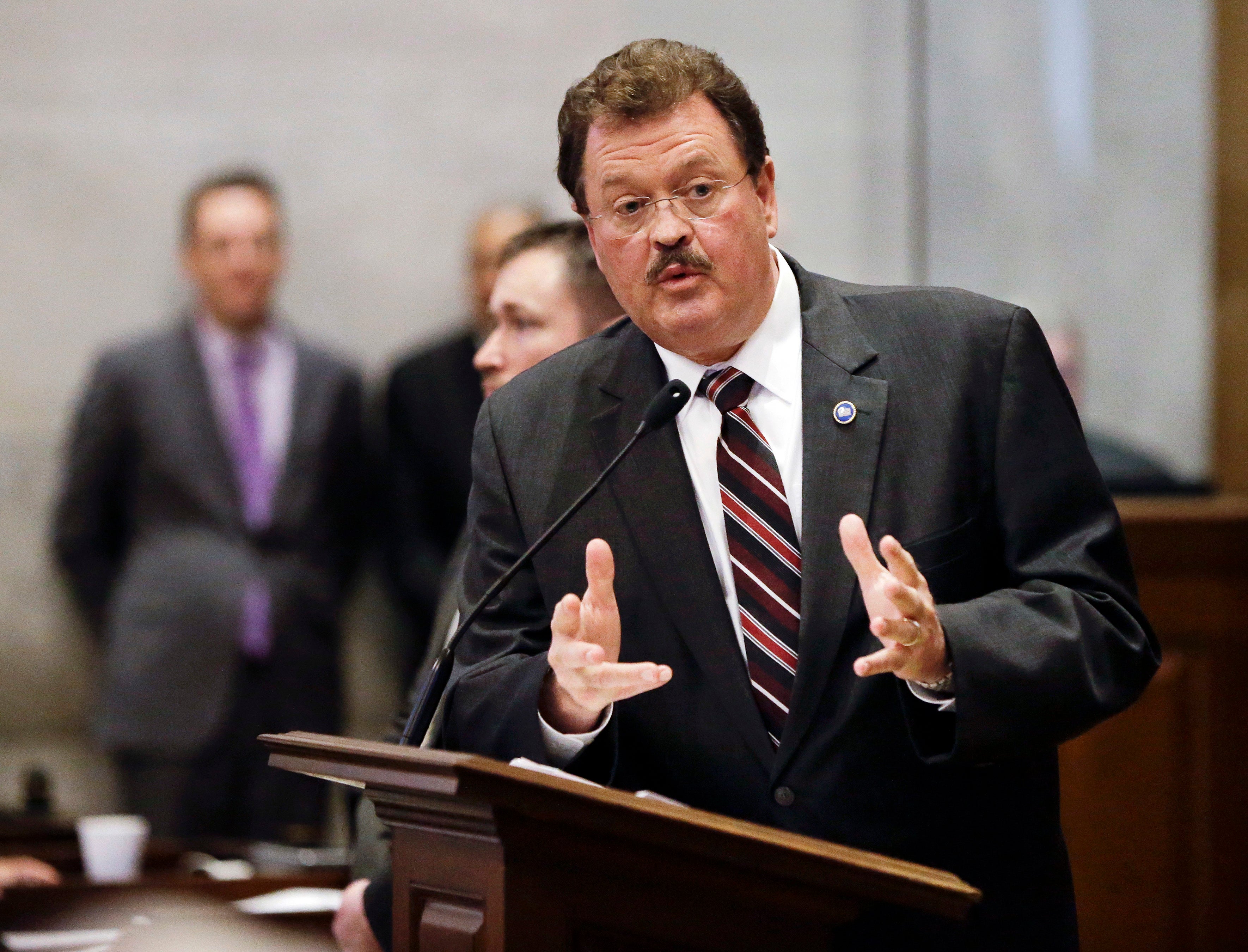School library bill advances, sponsor suggests book burning
Tennessee Republicans have advanced legislation that would place more scrutiny over what books are placed in public schools libraries just moments after the bill’s House sponsor said any inappropriate book should be burned

Your support helps us to tell the story
From reproductive rights to climate change to Big Tech, The Independent is on the ground when the story is developing. Whether it's investigating the financials of Elon Musk's pro-Trump PAC or producing our latest documentary, 'The A Word', which shines a light on the American women fighting for reproductive rights, we know how important it is to parse out the facts from the messaging.
At such a critical moment in US history, we need reporters on the ground. Your donation allows us to keep sending journalists to speak to both sides of the story.
The Independent is trusted by Americans across the entire political spectrum. And unlike many other quality news outlets, we choose not to lock Americans out of our reporting and analysis with paywalls. We believe quality journalism should be available to everyone, paid for by those who can afford it.
Your support makes all the difference.Tennessee Republicans advanced legislation Wednesday that would place more scrutiny over what books are placed in public schools libraries, moments after the bill’s House sponsor said any inappropriate book should be burned.
The measure is just one of several proposals introduced in Tennessee this year designed to impose more scrutiny and transparency in public school libraries amid a national spike in book challenges and bans. School librarians have become the target of scorn from Republican lawmakers pushing for more oversight on materials provided to children — particularly those that touch on racism and LGBTQ issues.
Republican Rep. Jerry Sexton, from Bean Station, introduced a last-minute amendment this week to a school bill that would give the state's textbook commission — which is made up of politically appointed members — veto power over what books end up on school library shelves. Schools would have to provide the commission a list of their library materials.
Democratic Rep. John Ray Clemmons, from Nashville, asked Sexton what he would do with books deemed to be inappropriate.
“You going to put them in the street? Light them on fire? Where are they going?” Clemmons asked.
“I don’t have a clue, but I would burn them,” Sexton said on the House floor.
Later, he amended what he had said on the floor to note that he wasn't a member of the textbook commission and didn't think any book-burning was likely to occur.
Earlier this year, Sexton had lashed out at librarians during a legislative hearing that included testimony from some who alleged without proof that educators were attempting to “groom” children with sexually explicit materials found in libraries.
“I don’t appreciate what’s going in our libraries, what’s being put in front of our children and shame on you for putting it there,” Sexton said at the time.
Democratic Rep. Gloria Johnson, from Knoxville, said the legislation aimed at libraries was taking “Tennessee in a dangerous direction.”
Librarians have countered throughout this debate that schools already have policies in place for parents and educators to review school library books. They stress the need for better resources and possibly adding a state library coordinator to promote literacy and education across the state — which the General Assembly has advanced this year.
The Republican-supermajority House approved the bill on a 66-26 vote, but time is running short in the 2022 legislative session. The GOP-controlled Senate has advanced a separate version that would simply instruct the textbook commission to provide library guidance to schools.
Book banning put Tennessee in the national spotlight recently after a rural school board in McMinn County voted unanimously to remove “Maus,” a Pulitzer Prize-winning graphic novel about the Holocaust, from the district’s curriculum. Meanwhile, in Williamson County, an affluent region just south of Nashville, school board members agreed to remove “Walk Two Moons” — a book that depicts an American Indian girl’s search for her mother — after parents complained about it.
Republican Gov. Bill Lee has also fueled this debate, targeting school libraries in a speech earlier this year and introducing his own legislation that he said would ensure students consume “age appropriate” content. The bill, which Lee has since signed into law, requires school libraries to post their contents online and regularly review their policies to make sure the materials are “age-appropriate” and “suitable” for the children accessing them.